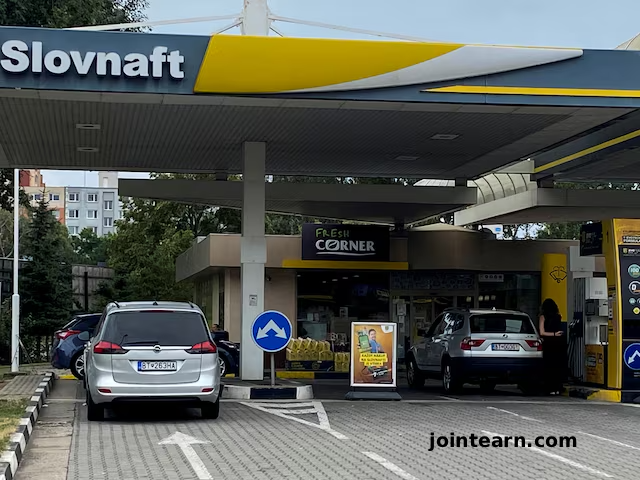
November 6, 2025 – Slovak oil refiner Slovnaft, part of Hungary’s MOL Group, has announced that Croatian pipeline operator JANAF has cut deliveries of non-Russian crude, creating significant challenges for the refinery’s efforts to diversify away from Russian oil. The move threatens the supply of alternative fuels to Central Europe, raising concerns over energy security in the region.
Slovnaft had planned to process a mix containing 50% non-Russian crude in October and November, aiming to reduce reliance on Russian oil. However, the refinery is now facing a shortfall of 90,000 tonnes of Arab Light crude transported via the Adriatic pipeline.
“They seriously jeopardize the supply of non-Russian fuel to Central Europe,” said Slovnaft spokesman Anton Molnar, noting that replacing the volume cannot be done quickly and could disrupt the refinery’s production schedule.
Slovnaft Alleges Contract Breach
Slovnaft has informed JANAF that it considers the Croatian company’s actions a breach of contract. The company argued that the cut in supply comes at a time when it is actively trying to reduce its dependence on Russian crude, following the expiration of an EU-sanction exemption in June that previously allowed the refinery to export products derived from Russian oil to the Czech Republic.
JANAF, however, denied the allegations. In a statement, the Croatian pipeline operator said:
“We firmly reject the claims made by Slovnaft regarding breaches of the contract provisions as false and unfounded. Oil transport through our system is being carried out according to the transport schedule and in full compliance with our agreement with Slovnaft.”
JANAF also encouraged MOL Group to increase utilization of the pipeline, noting that its current use by MOL was “significantly below the contracted and customary business practice in the oil pipeline transport sector.”
Impact on Central European Energy Supply
The Adriatic pipeline is a critical route for alternative crude supplies to Hungary and Slovakia, which have traditionally relied on Russian oil transported via the Druzhba pipeline. Disruptions to non-Russian crude deliveries could complicate regional efforts to secure diversified energy sources and meet EU energy targets.
In 2024, Slovnaft processed 4.8 million tonnes of crude, of which 662,000 tonnes were alternative types. The reduction from JANAF represents a significant portion of its non-Russian supply, raising concerns about fuel security in Central Europe.
Hungarian and Slovak officials have previously expressed concerns over the Adriatic pipeline’s capacity and cost, especially amid growing tensions over EU sanctions on Russian oil companies such as Lukoil and Rosneft. Hungarian Prime Minister Viktor Orban recently stated that Hungary is exploring ways to mitigate the impact of these sanctions, and he is scheduled to meet U.S. President Donald Trump next week to discuss potential solutions.
Broader Implications
The disagreement between Slovnaft and JANAF underscores the geopolitical and logistical challenges facing Central European refiners as they attempt to diversify away from Russian crude. With global energy markets under pressure from sanctions, conflicts, and shifting supply chains, disruptions to pipelines such as the Adriatic route could have ripple effects on regional fuel availability and prices.
Analysts expect Slovnaft to continue seeking alternative suppliers and to adjust its refining schedules, while also closely monitoring pipeline capacity and contractual obligations with JANAF. The situation highlights the delicate balance between energy security, compliance with international sanctions, and the operational realities of refining and transporting crude oil.


Leave a Reply